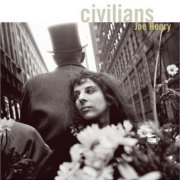 With the temperature dropping, it's time to find someone to keep you warm. Find your hookups with our online dating guide!
With the temperature dropping, it's time to find someone to keep you warm. Find your hookups with our online dating guide!
- Rock
- 2007
- Buy the CD
Reviewed by Jeff Giles
()
Like Tiny Voices and its predecessor, 2001’s beautifully cracked Scar, this album finds Henry tossing a number of seemingly disparate ingredients into a rusty old musical blender and trusting the listener to make room. It’s far more straightforward than either of Henry’s last two albums – more straightforward than anything he’s done since 1993’s country-tinged Kindness of the World, really – but it retains the smoky, sepia-toned ethos of those records; these are songs that hint at something foreboding, that communicate a fragile sense of hope and wonder, but ultimately force you to draw your own conclusions.
As such, they’ll probably feel awfully strange brushing past musical tastebuds that have been acclimated to artists such as Fergie or Nickelback – but on the other hand, these are songs that are meant to be savored quietly, not blasted into arenas or over the FM dial.
For longtime fans of Henry’s work, there’s plenty to latch onto right away. The watery pump organ and horror-show backing vocals of the title track and “Scare Me to Death” recall Tiny Voices more strongly than anything else here; elsewhere, the band – which includes Bill Frisell, Greg Leisz, and Patrick Warren – conspires to lend the album an open, almost relaxed feel. There’s plentiful mandolin, Van Dyke Parks makes a pair of cameo appearances on piano, and on the whole, the songs boast a stark, frayed beauty.
For a guy who often tends to bury his lyrics in acres of reverb, Henry’s a gifted lyricist, and Civilians is no exception. The title track finds him declaring “Life is short, but / By the grace of God, the night is long,” while on the brazenly titled “Parker’s Mood,” he proclaims, “The things we put together / The world will tear apart / But I’ve beat them to the start.” That song’s rolling, shimmering beauty belies the nervous arrhythmia at its heart; similarly, the lovely “You Can’t Fail Me Now” disguises itself as a desperate affirmation of love while including lines like “Trust me / Mercy's just a warning shot across the bow.”
The album’s centerpiece, however – and a new career peak for Henry – is the lovely, swaying shuffle of “Our Song,” which uses a chance encounter with Willie Mays in a Scottsdale Home Depot as a backdrop for a long, heartbroken look at the faded stripes on our tattered flag. “We push in line at the picture show,” says Henry, “for cool air and the chance to see / A vision of ourselves portrayed / As younger and braver and humble and free.”
Civilians lets up on you here and there – “Wave,” for instance, is comparatively underwhelming – but given the way the rest of the album sits on you with the emotional weight of 20,000 anvils, that actually comes as a relief. It’s destined to come and go with the softest of commercial whimpers, but this is absolutely one of the most beautifully haunting albums of the year. Avoid it at your own peril.
You can follow us on Twitter and Facebook for content updates. Also, sign up for our email list for weekly updates and check us out on Google+ as well.











